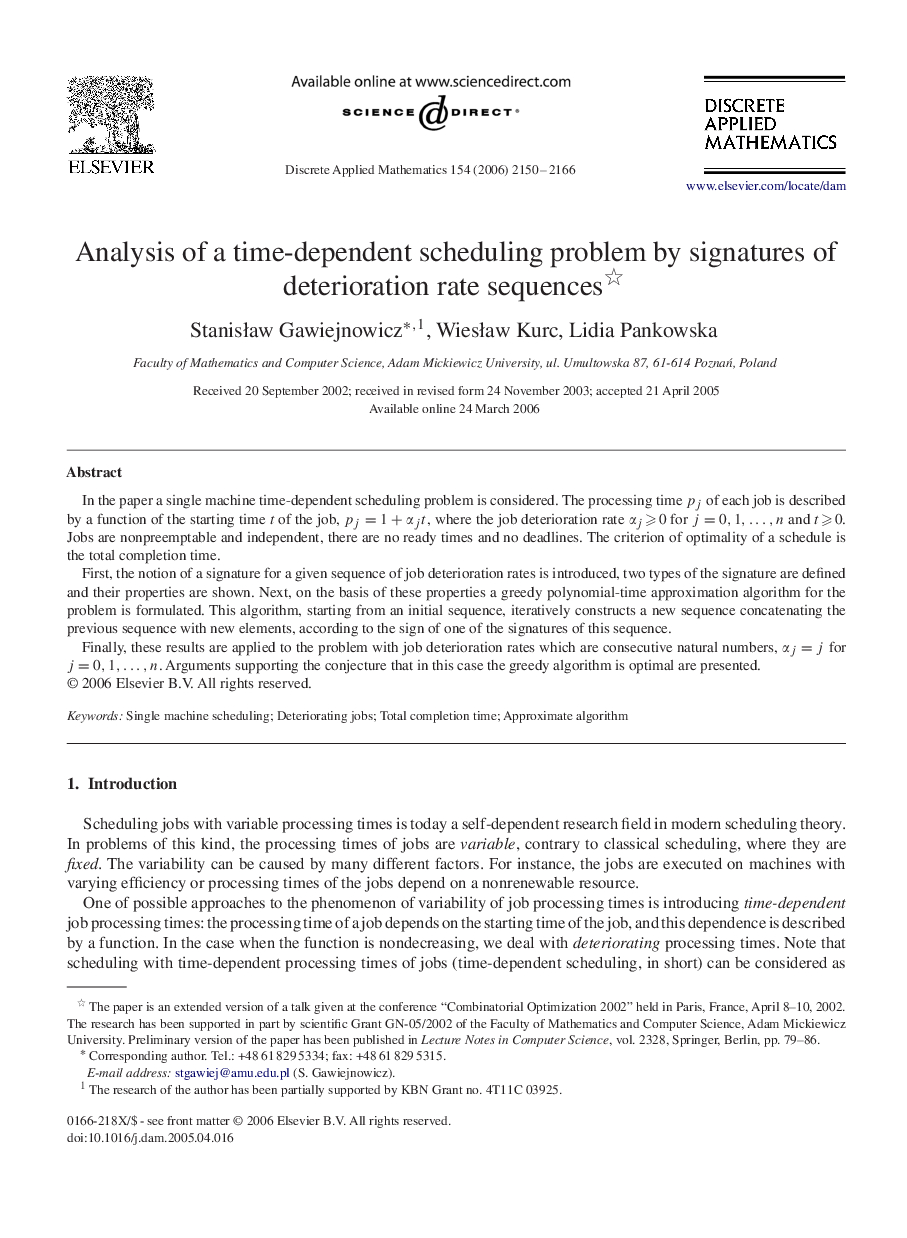| Article ID | Journal | Published Year | Pages | File Type |
|---|---|---|---|---|
| 420986 | Discrete Applied Mathematics | 2006 | 17 Pages |
In the paper a single machine time-dependent scheduling problem is considered. The processing time pjpj of each job is described by a function of the starting time t of the job, pj=1+αjtpj=1+αjt, where the job deterioration rate αj⩾0αj⩾0 for j=0,1,…,nj=0,1,…,n and t⩾0t⩾0. Jobs are nonpreemptable and independent, there are no ready times and no deadlines. The criterion of optimality of a schedule is the total completion time.First, the notion of a signature for a given sequence of job deterioration rates is introduced, two types of the signature are defined and their properties are shown. Next, on the basis of these properties a greedy polynomial-time approximation algorithm for the problem is formulated. This algorithm, starting from an initial sequence, iteratively constructs a new sequence concatenating the previous sequence with new elements, according to the sign of one of the signatures of this sequence.Finally, these results are applied to the problem with job deterioration rates which are consecutive natural numbers, αj=jαj=j for j=0,1,…,nj=0,1,…,n. Arguments supporting the conjecture that in this case the greedy algorithm is optimal are presented.
